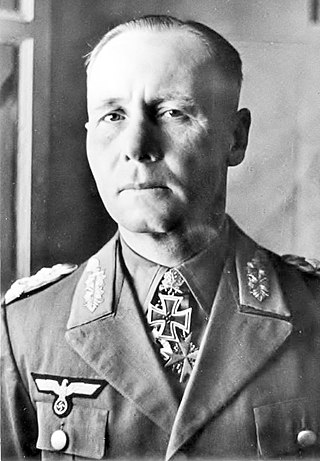
Johannes Erwin Eugen Rommel was a German field marshal during World War II. Popularly known as the Desert Fox, he served in the Wehrmacht of Nazi Germany, as well as serving in the Reichswehr of the Weimar Republic, and the army of Imperial Germany. Rommel was injured multiple times in both world wars.
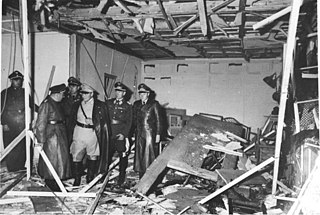
The 20 July plot was a failed attempt to assassinate Adolf Hitler, the dictator of Germany, and subsequently overthrow the Nazi regime on 20 July 1944. The plotters were part of the German resistance, mainly composed of Wehrmacht officers. The leader of the conspiracy, Claus von Stauffenberg, planned to kill Hitler by detonating an explosive hidden in a briefcase. However, due to the location of the bomb at the time of detonation, the blast only dealt Hitler minor injuries. The planners' subsequent coup attempt also failed and resulted in a purge of the Wehrmacht.
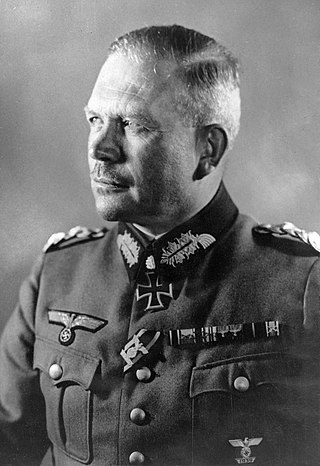
Heinz Wilhelm Guderian was a German general during World War II who, after the war, became a successful memoirist. An early pioneer and advocate of the "blitzkrieg" approach, he played a central role in the development of the panzer division concept. In 1936, he became the Inspector of Motorized Troops.

Hans Speidel was a German general, who was one of the major military leaders of West Germany during the early Cold War. The first full General in West Germany, he was a principal founder of the Bundeswehr and a major figure in German rearmament, integration into NATO and international negotiations on European and Western defence cooperation in the 1950s. He served as Commander of the Allied Land Forces Central Europe (COMLANDCENT) from 1957 to 1963 and then as President of the German Institute for International and Security Affairs from 1964.

The Desert Fox is a 1951 American biographical war film from 20th Century Fox about the role of German Field Marshal Erwin Rommel in World War II. It stars James Mason in the title role, was directed by Henry Hathaway, and was based on the book Rommel: The Desert Fox by Brigadier Desmond Young, who served in the British Indian Army in North Africa.
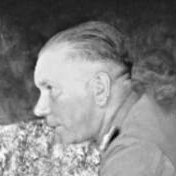
Walther Nehring was a German general in the Wehrmacht during World War II who commanded the Afrika Korps.
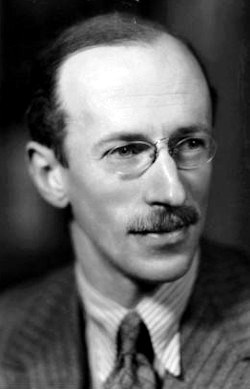
Sir Basil Henry Liddell Hart, commonly known throughout most of his career as Captain B. H. Liddell Hart, was a British soldier, military historian, and military theorist. He wrote a series of military histories that proved influential among strategists. Arguing that frontal assault was bound to fail at great cost in lives, as proven in World War I, he recommended the "indirect approach" and reliance on fast-moving armoured formations.
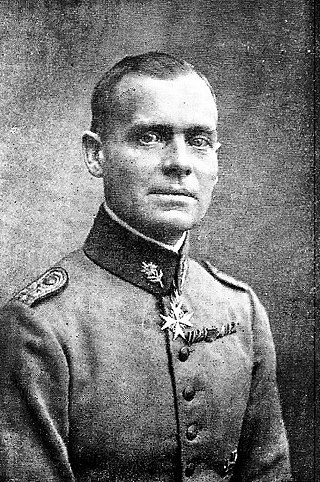
Heinrich Kirchheim was a German generalleutnant who served in both World War I and World War II. He is also one of few German officers who were awarded the Pour le Mérite and the Knight's Cross of the Iron Cross. He also served as a deputy member on the "Court of Military Honour," a drumhead court-martial that expelled many of the officers involved in the 20 July Plot from the Army before handing them over to the People's Court.
George Ronald Lewin CBE, later known as Ronald Lewin, was a British officer, publishing editor, radio producer and military historian.

Johannes Streich was a German general in the Wehrmacht during World War II who commanded the 5th Light Division during the early stages of the North African Campaign. Sacked for his poor performance during the Siege of Tobruk, he later briefly commanded the 16th Motorised Infantry Division during the advance on Moscow. A veteran of World War I, he was also a recipient of the Knight's Cross of the Iron Cross.
Gottfried Frölich was a German general in the Wehrmacht during World War II, having served on the Western Front during World War I. A recipient of the Knight's Cross of the Iron Cross, he briefly commanded the 36th Infantry Division and then later led the 8th Panzer Division. He was relieved of his command for its performance during battles in Hungary in early 1945. He surrendered to British forces in May 1945 and was released three years later. He died in 1959.
Ralf Georg Reuth is a German journalist and historian. Reuth studied with Andreas Hillgruber and wrote his Ph.D. on the German strategy in the Mediterranean from 1940 to 1942. He published several books dealing with the Nazi era, among them a biography of Joseph Goebbels in 1992 and of Hitler in 2003. Reuth also edited a multivolume selection from the diaries of Joseph Goebbels, which drew criticism notably from Bernd Sösemann. He also wrote biographies of Erwin Rommel, Angela Merkel and Helmut Kohl.
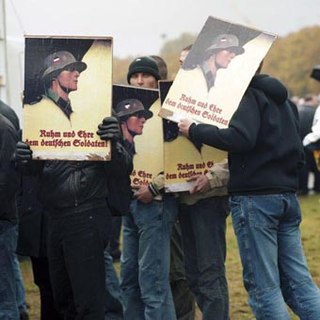
The myth of the clean Wehrmacht is the negationist notion that the regular German armed forces were not involved in the Holocaust or other war crimes during World War II. The myth, heavily promoted by German authors and military personnel after World War II, completely denies the culpability of the German military command in the planning and perpetration of war crimes. Even where the perpetration of war crimes and the waging of an extermination campaign, particularly in the Soviet Union – where the Nazis viewed the population as "sub-humans" ruled by "Jewish Bolshevik" conspirators – has been acknowledged, they are ascribed to the "Party soldiers corps", the Schutzstaffel (SS), but not the regular German military.
The Rommel myth, or the Rommel legend, is a phrase used by a number of historians for the common depictions of German field marshal Erwin Rommel as an apolitical, brilliant commander and a victim of Nazi Germany due to his presumed participation in the 20 July plot against Adolf Hitler, which led to Rommel's forced suicide in 1944. According to these historians, who take a critical view of Rommel, such depictions are not accurate.

Alfred-Ingemar Berndt was a German Nazi journalist, writer and close collaborator of Reich Minister of Public Enlightenment and Propaganda Joseph Goebbels.

The Rommel Papers is the collected writings by the German World War II field marshal Erwin Rommel published in 1953.
Heinrich von Prittwitz und Gaffron was a general officer in the Heer (Army) branch of the Wehrmacht of Nazi Germany during World War II. He was commander of the 14th and 15th Panzer Divisions and was killed in action in the early stages of the Siege of Tobruk.

The 387th Infantry Division was an infantry division of the German Army during the Second World War, active from 1942 to 1944. It saw active service on the Eastern Front and was destroyed in fighting in Romania in August 1944.
Peter Lieb is a German military historian who specializes in the history of Nazi Germany and World War II. He held positions at Institute of Contemporary History, Royal Military Academy Sandhurst and Center for Military History and Social Sciences of the Bundeswehr. Widely published in the field, Lieb specializes in the Western theatre of World War II.

A significant controversy exists over Germany's Bundeswehr's use of Erwin Rommel as its role model. Numerous critics take issue with the Bundeswehr's reverence towards Rommel as its primary role model. While recognizing his great talents as a commander, they point out several problems, including Rommel's involvement with a criminal regime and his political naivete. However, there are also many supporters of the continued commemoration of Rommel by the Bundeswehr, and there remains military buildings and streets named after him and portraits of him displayed.














